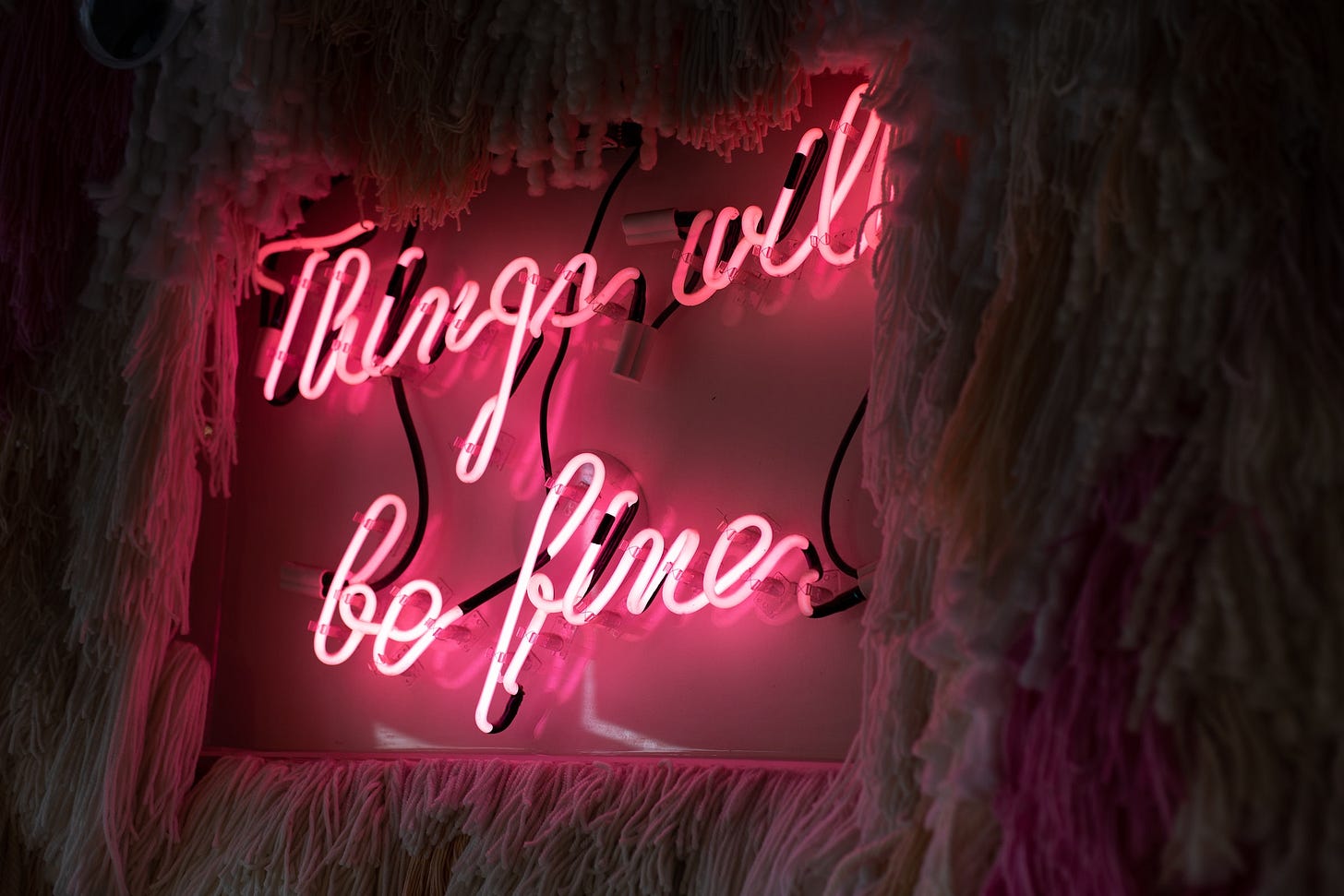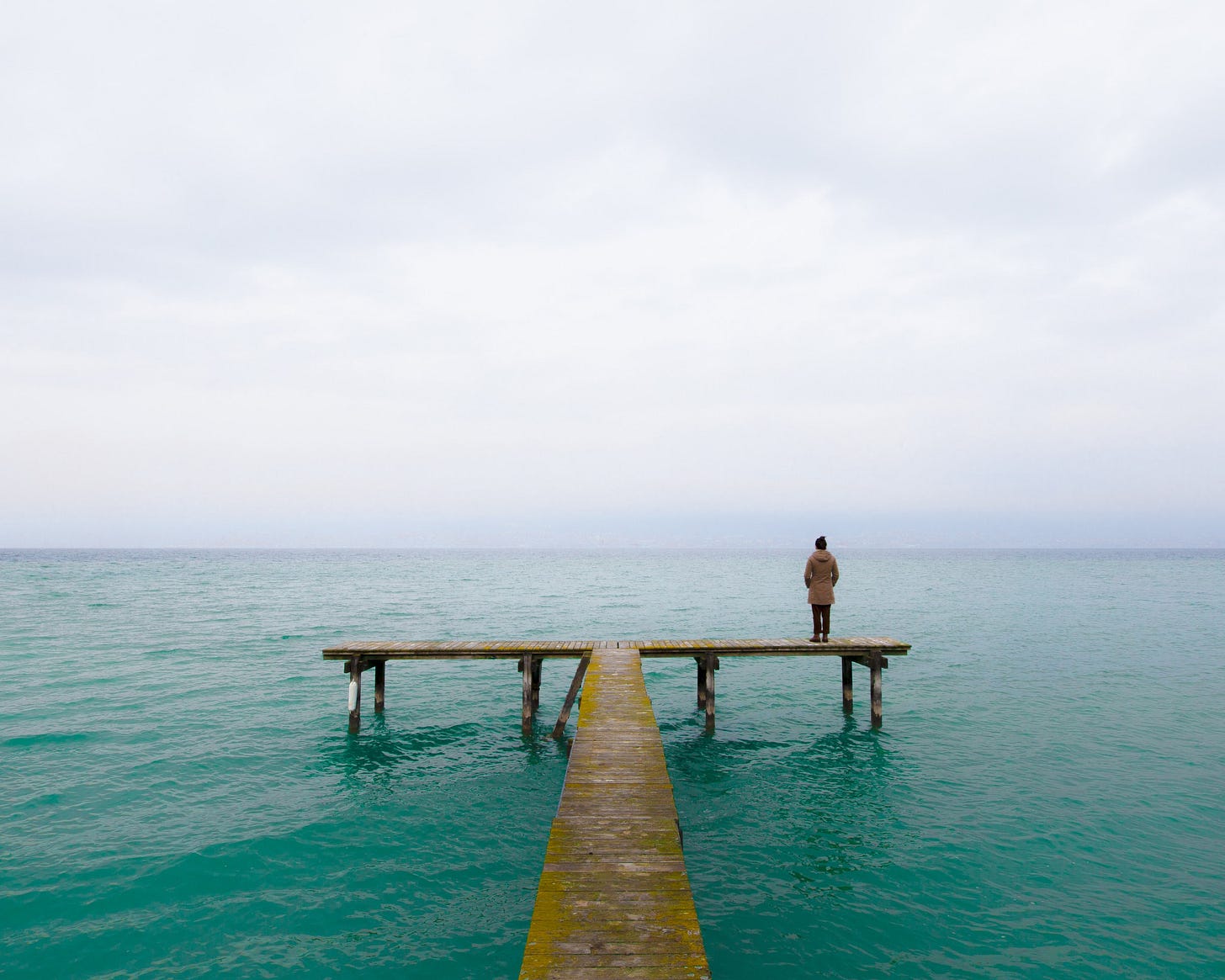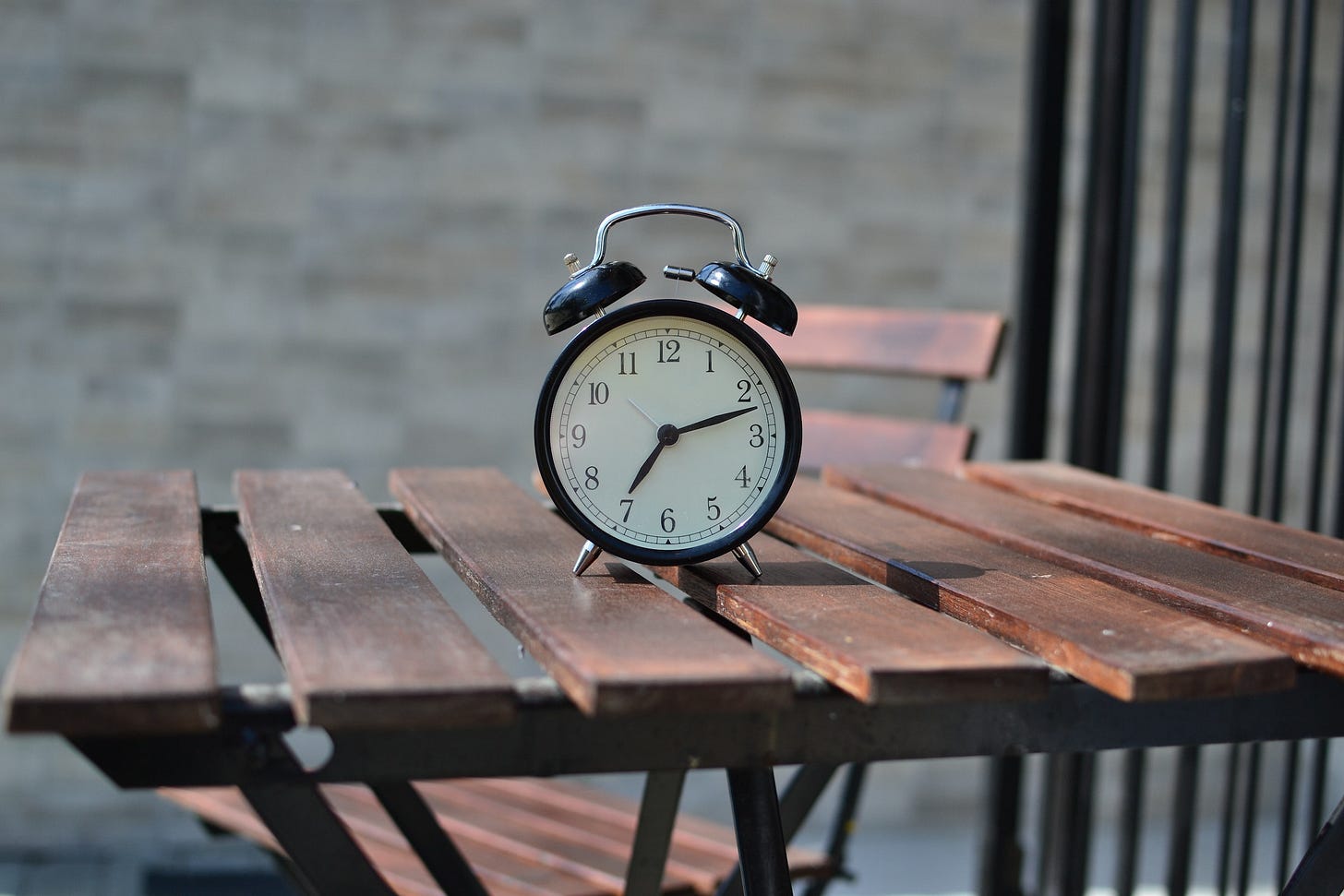Three Lies About Hard Things
“Time heals all wounds" and other magical thinking.
Note: some of the sentences in this post might seem discouraging at first. But I promise that in the end, the truth is worth it. (Hard things are often like that.)
I once believed that if someone didn’t love me, I simply couldn’t go on. I don’t mean I thought I would die, I just mean that I couldn’t foresee any outcome in which I would be able to go on without being loved.1
This was a form of magical thinking, just not a kind that came with many benefits. Associative? Wishful? Primitive? All such forms are disconnected from reality, of course.
By the way, this wasn’t when I was 13, it was when I was in my thirties.
Clearly I had a lot to learn! Much of which I’ve been sharing this year. And as mentioned, sometimes you need new skills. What got you here won’t get you where you need to go, etc.
So here’s the thing. If you’ve been through something difficult, or if you’ve going through it now—
The odds are good that somewhere along the way you’ve been comforted with false hope.
You’ve heard some commonly accepted beliefs presented as facts. These beliefs are NOT actually true—they are opinions without context, projected through someone else’s reality that may not align with yours.
Let’s start with:
1. “Time heals all wounds.”
This simply isn’t true. Unfortunately, time does not heal all wounds, and some people remain stuck in their wounds their whole lives.
Have you ever known someone like that? Maybe you were even a little frustrated with them, because in your subjective experience, they should have “gotten over” their setback or loss by now.
The thing is, if we don’t change our way of thinking, we won’t auto-magically get better. Perhaps a certain amount of time and space will help, but for a serious injury, time alone is insufficient.
Or perhaps some of us are just better at holding on than others—which is not always a great skill to have! (In many cases, letting go is the better choice.)

2. “It will all be okay.”
Well, it might be! But it might not. How does anyone know what will happen one way or another?
The world we live in is not always fair or just.
Innocent people suffer and die. The tsunami, the hurricane, the earthquake—these destructive forces of nature do not negotiate, going back and forth with you about what is an acceptable level of pain or sacrifice.
Saying “Don’t worry! It will all be okay” to someone in the midst of tragedy isn’t usually a great idea.
Because for them, it might not be.
What’s better is to understand that sometimes it’s not going to be okay. Instead of holding on in blind faith, this model asks, “What if it won’t be okay—what then?”
Or: “How can I be okay even if nothing else is?”
It’s hard, I know. But again, it’s much better than a false promise.

3. “You can stand up to anything.”
You can be strong and resilient, sure. Maybe even antifragile, which is better.
This doesn’t mean you’re INVINCIBLE, though. No one is. Everyone has a breaking point, a vulnerability, a set of limitations.
The strongest people have learned to watch their back. They know their limits, the way someone with an addiction understands that moderation doesn’t work for them.
For me, this is a big part of what I had to learn. Specifically: what doesn’t kill you can make you stronger, but it won’t happen on its own.
The conditional “can make you stronger” is important. Making you stronger is not guaranteed. You have to work for it.
What to Do About These Hard (But True) Things
So this sounds like bad news, right? Like I said, I realize it might seem like kind of a downer.
I get it. But another thing I had to learn was that accepting hard things makes us better.
To personalize it more: learning to accept hard things made ME better.
This is where it gets real! Once you understand that time doesn’t fix everything (for example), or that things might not end up being okay (the next obvious example), you behave differently.
You might see that waiting around for someone else to change isn’t a great idea—so you stop waiting.
You might stop being passive and learn to take more active steps. (See: change, later.)
You might stop trying to be invincible—an impossible quest—and start training yourself to be truly strong. (As part of this, you might find that strong people understand some fights are better off avoiding.)
The list goes on, but it all comes back to: once you accept that some things will be hard, with no easy solutions—you regain the power that you forfeited in looking outside yourself for the answers.
You stop the magical thinking. You face things as they are, not the way you want them to be.
The answers are right there! You have them already. Or at least you can find a next step, and sometimes that’s all you need. ❤️
Conversation Starters
A hard thing you experienced, and how you feel about it now.
What’s another difficult truth that ultimately brings healing?
Does anyone know any good jokes?
Paid attention to, wanted, “chosen,” etc.



These kinds of statements are really invalidating. "I'm so sorry this is happening to you. I'm here. Please let me help" or "Would it help if I did x for you?" are much better received and ultimately more impactful.
“The strongest people have learned to watch their back. They know their limits, the way someone with an addiction understands that moderation doesn’t work for them.”
Chris, this is so crucial and something so few people seem to be able to respect.
Moderation does NOT work for everyone. Sure, maybe it works for “YOU” — but I’m not YOU!
Extremely addictive personalities are usually the result of extreme trauma. People with outlier levels of trauma simply have to face the reality of what’s been done to their nervous system.
Time is not going to heal it. Other people’s ideas of how to live in an extremely traumatized/addictive nervous system are not going to heal it. Only getting real about the fact that trauma trashed your nervous system is going to heal it.
The more I accept that moderation is completely and totally off the table for me, the more I heal.
I was so traumatized, and therefore have such a hair-trigger addictive system, that eating one slice of an apple can set off a ten-day fruit eating binge. And we’re not talking a few apples a day…We’re talking two pounds of tangerines every day for 10 days. We’re talking, becoming a fruit eating zombie — being taking over by the inner Kraken. It is NOT fun. But that’s what happened to me in June.
People mean well, but an apple slice to me might be like giving an alcoholic a drink that starts them back down the slide to total oblivion.
I get that people have a difficult time understanding how someone could be so addictive they can’t even eat fruit. But the level of trauma I’ve been through is so extreme I can’t even begin to mention the things that have been done to me or the things I was forced to eat as a child! Given my exposure to being force-fed horrific non-food items, it makes sense why I have almost indestructible eating disordered tendencies.
Most people have no clue about where other people might be coming from and why time is not going to heal the crap they’ve been through.
No one is coming to save you! Almost no one is going to understand you — and the further off the chain your trauma is, the more you’re the one that has to get real about it and accept it for what it is because so few other people around you are ever going to get there.
So give up on getting everybody to support you. Give up on them ever getting a clue. Stop eating fruit if you have to. Screw moderation. Do whatever the hell you have to do to heal and leave those losers behind!
The more I do that, the more I overcome what was done to me. I’m not going to let those psychos who did what they did to me win. Outliers of the world, let’s prevail by doing whatever we have to!